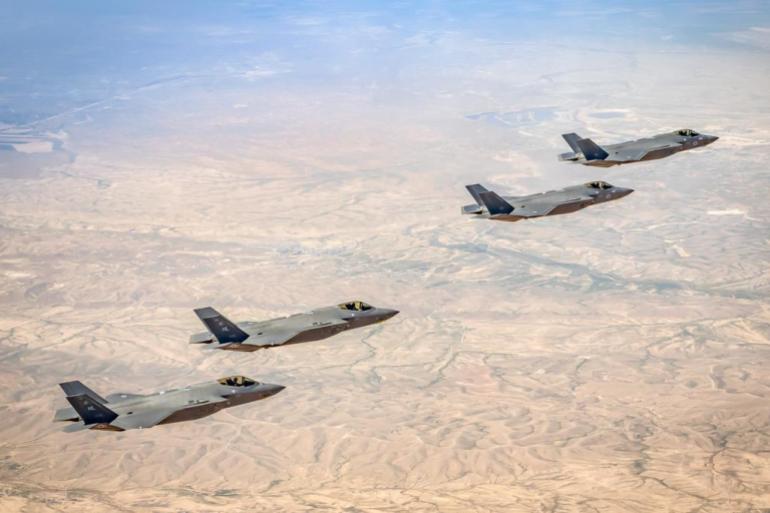The commander of the air defense system in the Israeli Air Force, Brigadier General Ran Hokhav Kochav, warned of the possibility that Iran would attack targets inside Israel, similar to the attack on two large oil facilities in Saudi Arabia in 2019.
Referring to the Israeli presence in Yemen after the normalization of relations with the UAE, and Yemeni accusations to Saudi Arabia and the UAE of introducing Israel to the island of Socotra to separate it from Yemen, and in response to the question of the military correspondent of the Israeli website "Walla" (www.walla.co.il) Amir Bouhbout, about The possibility that Iran would launch an attack on Israel from Yemeni lands, Kouchhav said, "This possibility exists. What happened in Saudi Arabia could happen in other places. Iran is able to deploy its forces in various locations, including the Golan Heights."
The commander of the Israeli air defense system continued, wondering, "Is it possible for this to happen with us? It is clear that this is possible."
Stressing that the main problem and challenges that the Israeli air defense forces face is confronting threats from different locations and fronts simultaneously, including the Gaza Strip, Syria, Lebanon and further places (referring to Iran).
He said, "Israel will soon be forced to operate all the air defenses of the Air Force simultaneously, as the challenges are intertwined and are becoming more difficult."
Defensive systems for the Israeli Air Force rely on Iron Dome (Al-Jazeera)
Scenarios and challenges
The commander of the Israeli air defense system reviewed the challenges facing the various war fighters and battery defense systems, saying, "Think for a moment about the variety of threats. I was the commander of the Vulcan (multi-barreled cannon) battalion in Lebanon. What did you deal with? Surfboards and helicopters?"
Today - the Israeli officer adds - there are a variety of threats that I deal with on several fronts and in various arenas, so that the protection of the country's sky begins with the possibility of a small plane attack, or the launch of a missile, missiles, fighter planes and ballistic missiles.
"The defense system allows the attacker to decide when to attack ... Iron Dome changed the whole concept. If we wanted to attack every time they fired four missiles, we would return to occupy Gaza, so the perception of investing in defense systems and Iron Dome was correct in the long term."
Capacity and shortcomings
In response to a question about whether he believed the Iranians were capable of attacking targets in Israel from Yemen, Kochav said, "First and foremost, the capability is there. What happened in Saudi Arabia could happen in other places as well. It can deploy forces in different places. Is it possible?" Could it happen to us? It could obviously happen to us.
"They all want to target and attack us, everyone in the circle of targeting and attack, whether in the air or defensive systems, and therefore there must be a network between the defense system and offensive equipment, which is crucial to the success of the mission," he added.
Special exercises for F-35 fighters in the Negev Desert (Al-Jazeera)
"In daily routine life, in battle, between wars, and even in war, one of the main problems is that the air defense system is always a scarce resource and suffers from deficiencies. There are batteries and defense systems that are tried, modernized and developed, so the challenge is where to place operational batteries to face Threats persist. "
Revolution and innovation
With the emergence of technological improvements, new perceptions and an increase in the training range, Kochav says, "The air defense system is on the verge of a real revolution. Soon there will be a shift to the Iron Dome battery program so that all defense systems can communicate with each other at the same time, so now every defense battery can see." Threats and their interception by decision of the Defense System Administration Center. "
The Israeli officer unveiled the development of an "innovative national defense system," approved by the commander of the Israeli Air Force, Amikam Norky, and the Chief of Staff of the Army, Aviv Kochavi, and provides for the creation of a central and unified defense system for all defense systems that operate simultaneously and in coordination with the offensive systems.

